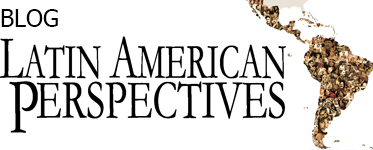Political Report #1450 Walking the Tightrope: Latin America’s Pink Tide
Political Report # 1450 Walking the Tightrope: Latin America's Pink Tide by Frederick B. Mills, New Politics Latin America’s Pink Tide: Breakthroughs and Shortcomings Steve Ellner, ed. Foreword by Boaventura de Sousa Santos Lanham, MD: Rowman & Littlefield, 2020. 355 pp. Latin America’s Pink Tide: Breakthroughs and Shortcomings, edited by economic historian and prominent Latin Americanist Steve Ellner, offers a critical ethical theoretical framework for assessing the performance of left and left-of-center governments in Latin America during the Pink Tide. The “Pink Tide” refers to the wave of progressive governments beginning with the election of Hugo Chávez in Venezuela in 1998. These progressive governments provided alternatives to the neoliberal economic model that had brought growing economic and social inequality, austerity, privatization of public resources, and political subordination to Washington to most of the region during the last two decades of the twentieth century. Pink Tide governments were brought to power by widespread disillusion with traditional political parties and were buoyed by social movements that sought economic and social justice and more democratic participation in the political life of their nations. The Pink Tide brought a period of economic nationalism, progress toward regional integration, and the inclusion, [...]


